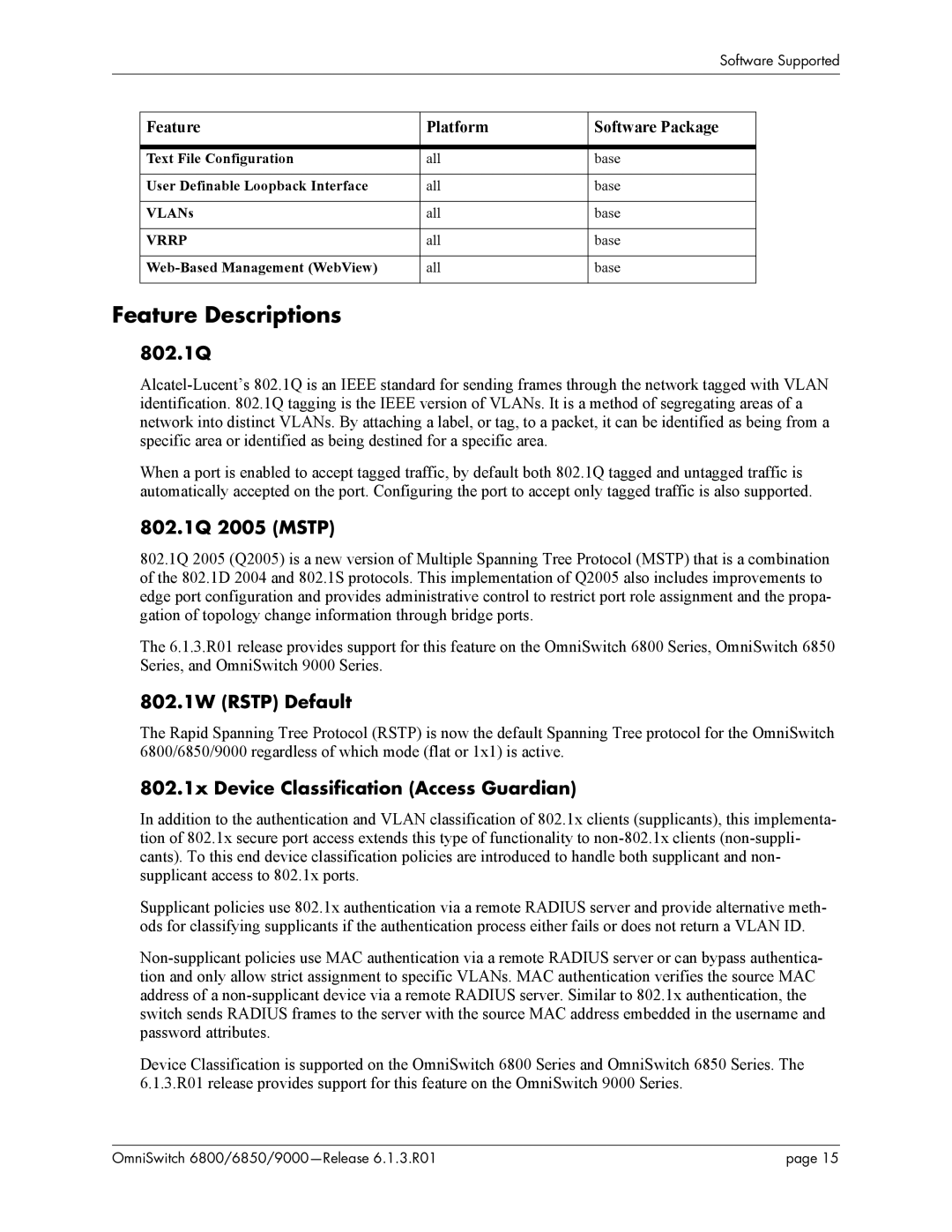
Software Supported
Feature | Platform | Software Package |
|
|
|
Text File Configuration | all | base |
|
|
|
User Definable Loopback Interface | all | base |
|
|
|
VLANs | all | base |
|
|
|
VRRP | all | base |
|
|
|
all | base | |
|
|
|
Feature Descriptions
802.1Q
When a port is enabled to accept tagged traffic, by default both 802.1Q tagged and untagged traffic is automatically accepted on the port. Configuring the port to accept only tagged traffic is also supported.
802.1Q 2005 (MSTP)
802.1Q 2005 (Q2005) is a new version of Multiple Spanning Tree Protocol (MSTP) that is a combination of the 802.1D 2004 and 802.1S protocols. This implementation of Q2005 also includes improvements to edge port configuration and provides administrative control to restrict port role assignment and the propa- gation of topology change information through bridge ports.
The 6.1.3.R01 release provides support for this feature on the OmniSwitch 6800 Series, OmniSwitch 6850 Series, and OmniSwitch 9000 Series.
802.1W (RSTP) Default
The Rapid Spanning Tree Protocol (RSTP) is now the default Spanning Tree protocol for the OmniSwitch 6800/6850/9000 regardless of which mode (flat or 1x1) is active.
802.1x Device Classification (Access Guardian)
In addition to the authentication and VLAN classification of 802.1x clients (supplicants), this implementa- tion of 802.1x secure port access extends this type of functionality to
Supplicant policies use 802.1x authentication via a remote RADIUS server and provide alternative meth- ods for classifying supplicants if the authentication process either fails or does not return a VLAN ID.
Device Classification is supported on the OmniSwitch 6800 Series and OmniSwitch 6850 Series. The 6.1.3.R01 release provides support for this feature on the OmniSwitch 9000 Series.
OmniSwitch | page 15 |
